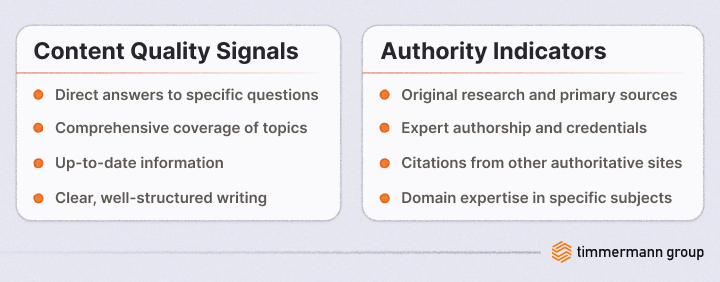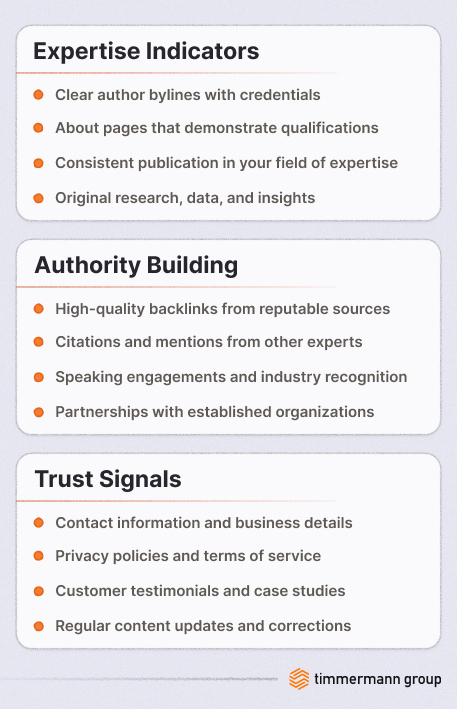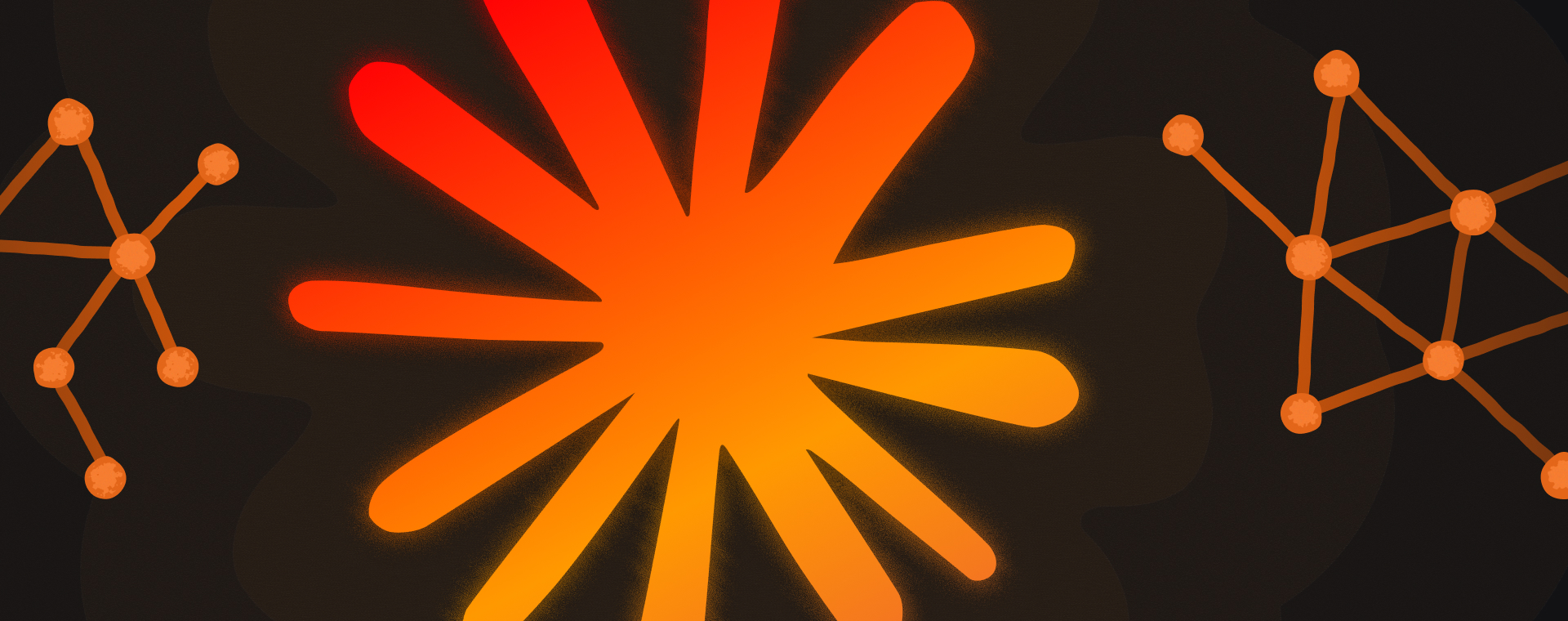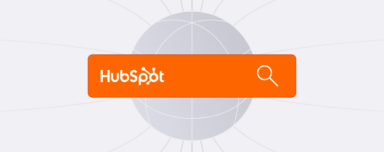Effective SEO for Claude: Strategies to Boost Your Rankings
Looking to improve your search rankings with SEO for Claude? Claude, an AI large language model made by Anthropic, leverages advanced natural language processing to understand user intent more precisely than traditional SEO tools. In this article, we’ll show you how to optimize your content for Claude, ensuring it resonates with both search algorithms and human readers.
Key Takeaways
- Authority and expertise matter more than keyword density
- Clear structure and comprehensive answers help Claude extract and use your content effectively
- Original sources and primary research are heavily favored over aggregated content
- Technical optimization ensures Claude can efficiently crawl and understand your site
How Claude Searches and Evaluates Content
Claude utilizes sophisticated natural language processing to comprehend user search intent and identify the most relevant and trustworthy sources. When a user asks Claude a question, it searches for content that can provide accurate, comprehensive answers. This process is fundamentally different from traditional search engines because Claude actually reads and analyzes your content, rather than simply matching keywords and analyzing link patterns.
The AI’s approach to content evaluation mirrors that of a knowledgeable researcher when evaluating sources for an academic paper. It looks for expertise indicators, evaluates the logic and coherence of arguments, and cross-references information against other sources to assess credibility. This means that traditional search engine optimization tactics, such as keyword stuffing or building low-quality backlinks, are not only ineffective but also potentially counterproductive when optimizing for Claude. Developing AI search strategies requires much more nuance and expertise.
What Claude Looks For
Claude prioritizes several key factors when evaluating web content, and understanding these priorities is crucial for effective optimization. The AI system has been trained to recognize quality signals that indicate whether content is likely to be accurate, helpful, and trustworthy – the same qualities that make content valuable to human readers.

Content Quality Signals:
- Direct answers to specific questions
- Comprehensive coverage of topics
- Up-to-date information for time-sensitive subjects
- Clear, well-structured writing
Authority Indicators:
- Original research and primary sources
- Expert authorship and credentials
- Citations from other authoritative sites
- Domain expertise in specific subjects
Claude tends to avoid low-quality sources, such as forums or aggregator sites, unless they contain unique, valuable information that can’t be found elsewhere. This preference stems from the AI’s training to prioritize accuracy over popularity. It strongly favors original sources such as academic papers, government websites, company blogs, and expert publications because these sources are more likely to contain accurate, well-researched information. The AI has learned that content created by subject matter experts and published on authoritative platforms typically provides more reliable information than content that has been aggregated or summarized by non-experts.
Content Optimization Strategies for Claude
Creating SEO content for Claude requires focusing on depth, accuracy, and clear communication rather than traditional SEO tactics. This means your writing needs to demonstrate genuine expertise while being structured in a way that allows AI systems to extract key information efficiently.
Write Comprehensive, Question-Focused Content
Claude excels at finding content that directly answers user questions, which means your content strategy should center around the questions your audience actually asks rather than the keywords they might search for. This approach requires a deeper understanding of your audience’s needs and pain points. Start each piece with a clear, direct answer to the main question, then provide supporting details and context. This structure allows Claude to quickly identify whether your content is relevant to a user’s query while also providing the depth needed to fully address complex topics.
The reason this approach works so effectively with Claude is that the AI has been trained to prioritize content that demonstrates a clear understanding of user intent. When creating content around authentic questions and providing comprehensive answers, you’re essentially speaking Claude’s language. Use natural language patterns that mirror how people actually speak and ask questions. Instead of stuffing keywords, focus on providing thorough, helpful answers that demonstrate your expertise through specific examples, detailed explanations, and practical insights that readers can actually use.
Optimize for Topical Authority
Claude recognizes when websites consistently provide high-quality information on specific topics, and this recognition significantly impacts how likely the AI is to cite your content. Building topical authority isn’t just about publishing frequently – it’s about establishing yourself as a go-to source for reliable information in your field. This process takes time and consistency, but the payoff is substantial when Claude begins to view your site as an authoritative source.
- Publishing regularly on your area of expertise
- Creating in-depth, well-researched content
- Citing credible sources and providing original insights
- Covering topics comprehensively rather than superficially
The key to building topical authority that Claude recognizes lies in demonstrating depth of knowledge across related concepts within your field. Rather than creating surface-level content on a wide range of topics, focus on becoming the definitive resource for a specific area of expertise. This approach allows you to build interconnected content that reinforces your authority while providing Claude with clear signals about your area of specialization.
Structure Content for Easy Extraction
When Claude performs a web search, it needs to quickly understand and extract information from your content, which means your formatting decisions directly impact whether your content gets used in AI responses. The AI processes information hierarchically, so a well-structured piece of content is exponentially more likely to be understood and utilized than one with poor organization. Think of your content structure as a roadmap for artificial intelligence – clear signposts and logical flow make it easier for Claude to navigate and extract relevant information.
Header Hierarchy:
- Use H1 tags for main topics
- Break content into logical H2 and H3 sections
- Make headers descriptive and question-focused
Content Organization:
- Lead with key information in the first paragraph
- Use bullet points for lists and key concepts
- Keep paragraphs concise (2-4 sentences)
- Bold important terms and concepts
When creating SEO content, proper structure matters so much because Claude optimization goes beyond simple readability. Claude’s natural language processing algorithms are designed to identify and prioritize information based on structural cues, which means your formatting choices actually influence how the AI interprets the importance and relevance of different pieces of information within your content. When you use descriptive headers that clearly indicate what information follows, you’re essentially providing metadata that helps Claude understand the context and significance of each section.
Technical SEO Discovery for Claude
While content quality matters most, technical optimization ensures Claude can efficiently find and understand your website. The technical foundation of your site acts as the gateway between your valuable content and Claude’s ability to access it. Poor technical implementation can prevent even the highest-quality content from being discovered and used by the AI, making technical SEO a critical component of any Claude optimization strategy.
Site Performance and Accessibility
Claude’s web crawling capabilities work best with fast, accessible websites, and there are specific technical reasons why performance matters more for AI crawling than traditional search engine crawling. When Claude searches the web, it must process large amounts of content quickly to find the most relevant sources for user queries. Slow-loading websites create bottlenecks in this process, making it less likely that Claude will spend the time necessary to evaluate your content fully.
Core Performance Metrics:
- Page load speeds under 3 seconds
- Mobile-responsive design that works across devices
- Clean, semantic HTML structure
- Efficient image optimization and compression
Crawlability Factors:
- Clear site architecture and navigation
- XML sitemaps for better discovery
- Proper robots.txt configuration
- Internal linking that connects related content
In particular, the mobile-responsive requirement ensures that Claude can access your content regardless of how it approaches your site. AI systems don’t browse websites the same way humans do, and responsive design ensures that your content remains accessible and properly formatted regardless of the technical specifications of the crawling system. Additionally, clean semantic HTML provides crucial context clues that help Claude understand the meaning and structure of your content at a technical level.
Structured Data Implementation
While also useful for traditional technical seo, schema markup helps Claude understand your content’s context and meaning in ways that go far beyond what traditional search engines use structured data for. Although search engines primarily use schema markup to create rich snippets and featured results, Claude uses this structured information to better comprehend the relationships between different pieces of content and to understand the context in which information should be interpreted. This deeper level of understanding can significantly impact whether Claude views your content as authoritative and relevant for specific queries.
Implement relevant structured data for:
- Article and blog post content
- FAQ sections and Q&A pages
- Business information and contact details
- Product information and reviews
- Event and date-specific content
Focus on Article schema and FAQ Page schema, as these are particularly valuable for Claude’s content understanding. The FAQ schema is especially powerful because it directly aligns with Claude’s question-answering functionality, essentially providing a structured format that mirrors how Claude processes and responds to user queries. When you implement FAQ schema properly, you’re creating a direct pathway for Claude to extract and utilize your expert answers to common questions in your field.
Building Authority and Trust Signals
Claude heavily weighs authority and trustworthiness when evaluating sources, but the AI’s assessment of these qualities differs significantly from traditional search engine algorithms. Rather than relying primarily on backlink profiles and domain age, Claude evaluates authority through content quality, expert credentials, and consistency of expertise demonstration. This creates opportunities for newer websites with genuine expertise to compete effectively against established sites that may have high domain authority but lack subject matter expertise.
Establish Expertise, Authoritativeness, Trustworthiness (E-E-A-T)
The E-E-A-T framework becomes even more critical when optimizing for Claude because the AI is specifically trained to identify and prioritize content that demonstrates genuine expertise. Unlike traditional SEO where E-E-A-T signals might be indirect, Claude can actually analyze the content itself to assess whether the author demonstrates deep knowledge of the subject matter.

Expertise Indicators:
- Clear author bylines with credentials
- About pages that demonstrate qualifications
- Consistent publication in your field of expertise
- Original research, data, and insights
Authority Building:
- High-quality backlinks from reputable sources
- Citations and mentions from other experts
- Speaking engagements and industry recognition
- Partnerships with established organizations
Trust Signals:
- Contact information and business details
- Privacy policies and terms of service
- Customer testimonials and case studies
- Regular content updates and corrections
Building expertise that Claude recognizes requires demonstrating knowledge through your content rather than simply claiming expertise through credentials alone. While author credentials matter, Claude places equal weight on whether your content actually demonstrates the depth of knowledge that those credentials suggest. This means your content needs to include specific examples, detailed explanations, and insights that only someone with genuine expertise in the field would be able to provide. The AI can identify superficial content that lacks substantive insights, making authentic expertise more valuable than ever.
Optimize for Recency When Relevant
Claude considers content freshness, especially for time-sensitive topics, but the AI’s approach to evaluating recency is more nuanced than traditional search engines. Claude doesn’t simply favor the newest content – instead, it evaluates whether information has become outdated and whether newer information is more accurate or complete. Even with proper keyword research and satisfaction of search intent, this distinction is crucial because it means that well-maintained evergreen content can continue to perform well even when newer content exists on the same topic.
For topics where information changes frequently, such as technology, current events, or regulatory changes, maintaining current information becomes critical for Claude optimization. The AI is trained to recognize when information might be outdated and to prioritize sources that demonstrate ongoing attention to accuracy and completeness. Regular updates to evergreen content with new statistics, examples, and developments show Claude that your content remains accurate and relevant.
Maintain content relevance by clearly publishing and updating content with last-modified dates, which provide important signals about information currency. Timely coverage of industry news and trending topics in your expertise area also demonstrates to Claude that you’re actively engaged with current developments in your field, which enhances your overall authority on related subjects.
Content Formats Claude Prefers
Different content formats serve different purposes in Claude’s evaluation process, and understanding these preferences can help you structure your content strategy more effectively for improved search visibility. The AI doesn’t just randomly prefer certain formats – its preferences are based on how well different content types serve the goal of providing accurate, comprehensive answers to user questions.
Long-Form Comprehensive Guides
Claude often uses detailed, comprehensive content that thoroughly covers topics because this type of content is more likely to provide complete answers to complex questions. The AI has learned that longer, more detailed content typically contains more useful information and demonstrates greater expertise than shorter, surface-level pieces. However, length alone isn’t sufficient – the content must be well-organized and genuinely comprehensive rather than simply verbose.
Create in-depth guides that address topics from multiple angles, include practical examples and case studies that demonstrate real-world application, provide actionable steps and recommendations that readers can implement, and reference credible sources and data to support your points. The key is providing value density – every section should contribute meaningfully to the reader’s understanding of the topic.
FAQ and Q&A Content
Structured question-and-answer content performs exceptionally well because it matches Claude’s goal of performing a web search for the purpose answering specific user questions directly. This format alignment makes FAQ content particularly valuable for Claude optimization. When you create FAQ content, you’re essentially providing Claude with pre-structured answers that can be easily extracted and used in responses to similar user queries.
The most effective FAQ content anticipates the full range of questions users might have about a topic and provides comprehensive answers rather than brief, superficial responses. This approach not only serves Claude’s needs but also demonstrates your deep understanding of your audience’s concerns and pain points.
Data and Research Content
Original research, surveys, and data analysis are highly valuable to Claude because they represent primary sources of information that cannot be found elsewhere. This uniqueness makes such content particularly authoritative in Claude’s evaluation process. The AI has been trained to recognize and prioritize original research over aggregated or summarized content, making this type of content especially powerful for building authority and expertise signals.
Measuring SEO Success with Claude
Traditional SEO metrics like rankings and click-through rates don’t directly apply to Claude optimization, which creates challenges for marketers accustomed to tracking specific performance indicators. The fundamental difference is that Claude optimization success isn’t measured by whether users click through to your website, but rather by whether Claude finds your content valuable enough to use when answering questions. This shift requires developing new ways to measure success and understand the impact of your optimization efforts.
The challenge with measuring Claude optimization success is that much of the impact happens behind the scenes – Claude may be using your content to inform its responses without directly citing or linking to your website. This means that traditional referral traffic metrics may not fully capture the value you’re receiving from Claude optimization efforts.
Content Discovery and Usage Signals
Understanding whether Claude is discovering and using your content requires looking at both direct and indirect indicators of success. Direct indicators provide clear evidence of Claude engagement, while indirect signals suggest that your content is being recognized as authoritative and valuable by AI systems more broadly.
Direct Indicators:
- Increases in organic traffic from AI-driven search queries
- Mentions and citations in Claude responses (when trackable)
- Referral traffic from AI-generated content
Indirect Quality Signals:
- Improved search rankings for question-focused queries
- Increased backlinks from authoritative sources
- Higher engagement metrics and longer time-on-page
- More social shares and expert citations
The indirect signals are particularly important because they indicate that your content quality improvements for Claude optimization are also being recognized by other systems and human experts. When you create content that meets Claude’s standards for authority and expertise, that same content typically performs better across multiple channels and platforms.
Monitor Content Performance
Use analytics tools like Google Search Console to track how well your content performs for question-based queries, but remember that the metrics that matter for Claude optimization may differ from traditional SEO metrics. Look for increases in traffic from long-tail, conversational search queries that mirror how users interact with Claude – these queries often indicate that your content is being found through AI-powered search systems.
Featured snippet captures and other rich result appearances can also indicate that your content is structured in ways that AI systems find easy to understand and extract from. Direct navigation traffic, meanwhile, indicates brand authority building that supports overall trustworthiness signals that Claude values. The key is to look for patterns that suggest your content is being recognized as authoritative and useful by both AI systems and human users.
Frequently Asked Questions
What makes Claude different from other AI tools?
Claude stands out from other AI tools due to its advanced natural language processing capabilities, enabling it to understand user intent effectively and adapt to specific content creation needs. Its conversational approach allows users to engage without requiring advanced technical skills.
Which AI tool is best for SEO?
The best AI tool for SEO depends on your specific needs – Claude excels at research-based content, ChatGPT at creative writing, and Jasper at marketing copy. Choose based on your content type, budget, and integration requirements.
Is Claude or ChatGPT better?
Neither is universally better – Claude performs well for analytical and research-heavy content while ChatGPT excels at creative and conversational writing. Your choice should depend on your specific SEO content goals and writing style preferences.
What is the 80/20 rule for SEO?
The 80/20 rule means 80% of your traffic comes from 20% of your content. Focus optimization efforts on your highest-performing pages and keywords for maximum ROI.
Does Google penalize AI content for SEO?
Google doesn’t penalize AI content specifically, only low-quality content regardless of source. AI content that demonstrates expertise, authority, and trustworthiness can rank well.






